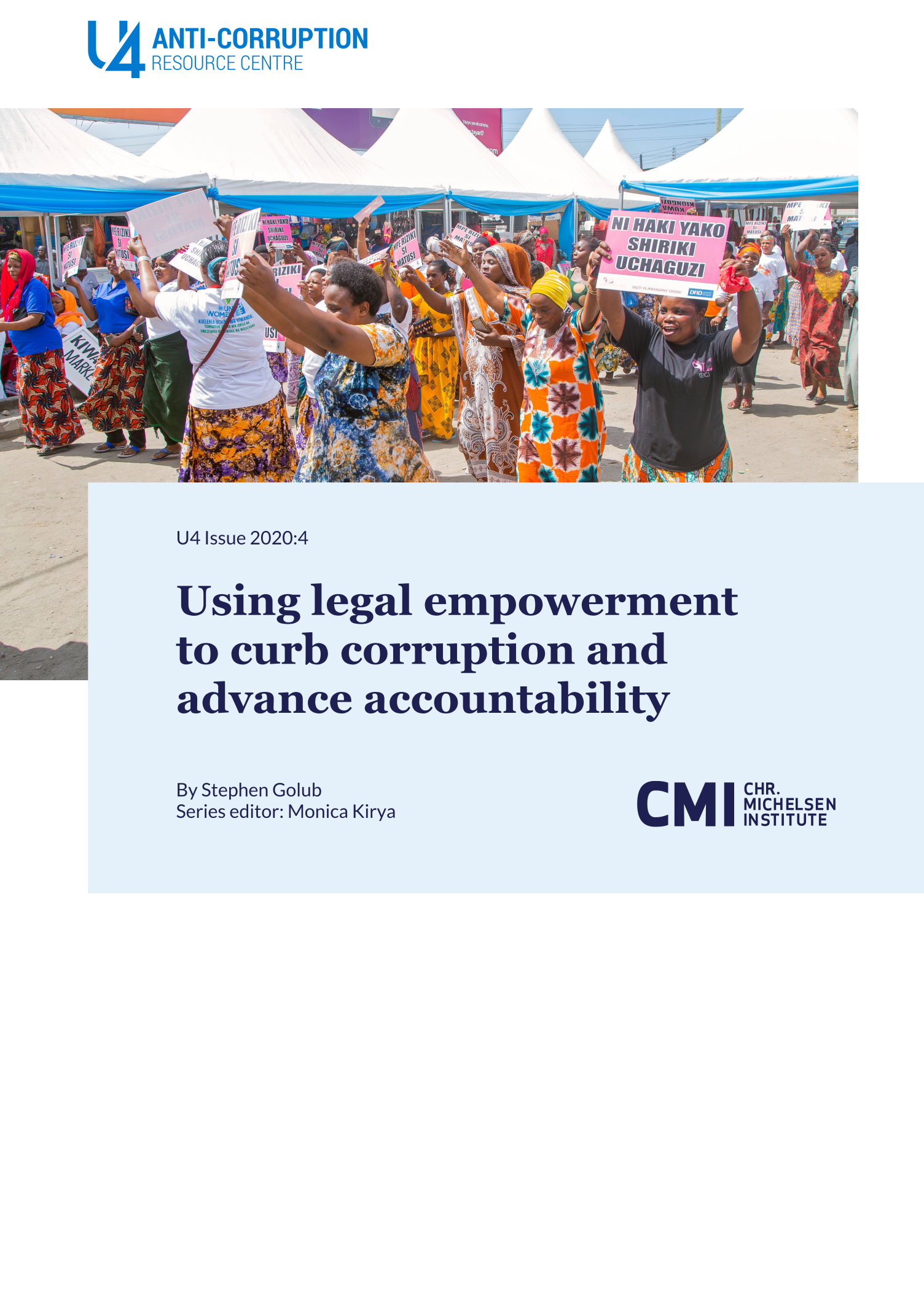Main points
- Legal empowerment is about helping people to know, use, and shape the law.
- Legal empowerment helps build people’s capacities and power to improve their lives, such as by elevating and protecting their income and assets or gaining greater access to health and education. This may involve combating corruption in both explicit and implicit ways, as corruption is often an obstacle to such goals.
- Legal empowerment can help equip people, especially the poor and marginalised, to use the law to enforce their rights, which are often violated as a result of corruption. People can enforce their rights through social accountability processes that seek to monitor public officials and public services, or they can take their cases to courts of law or administrative bodies.
- Legal empowerment also equips people to advocate for and effect changes in laws, rules, systems, and regulations in ways that will improve their ability to enjoy their human rights and live better lives.
- Civil society organisations are leading promotors of legal empowerment activities, although government agencies can also play a role.
- Donors should support legal empowerment as a multifaceted means for constraining corruption, often in the context of sector-specific programmes.
